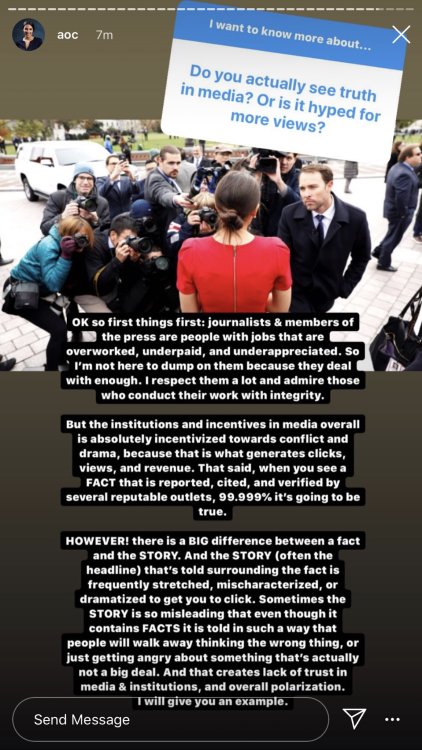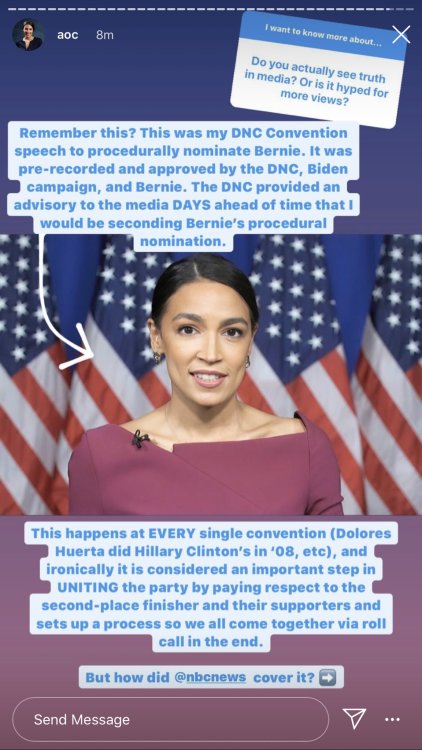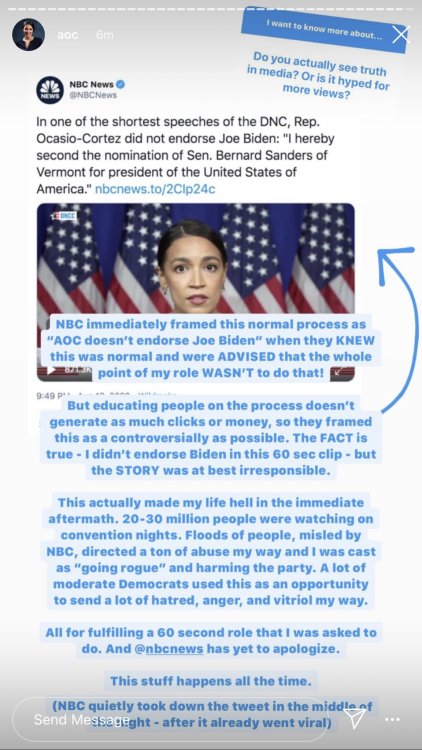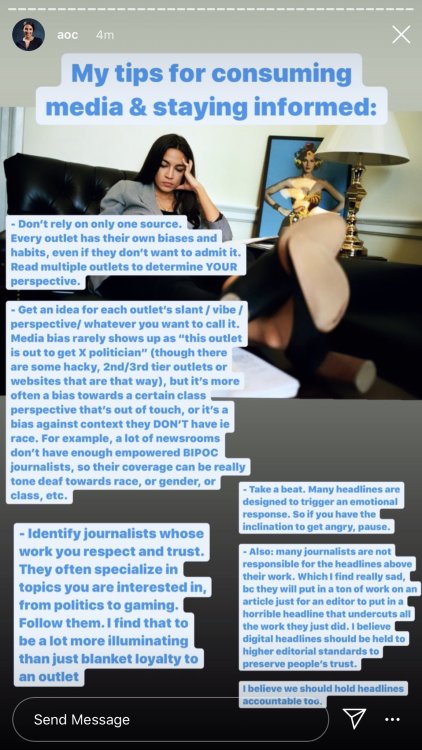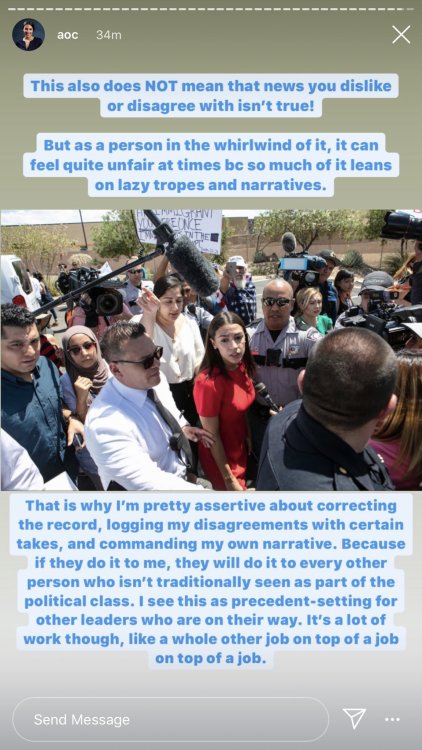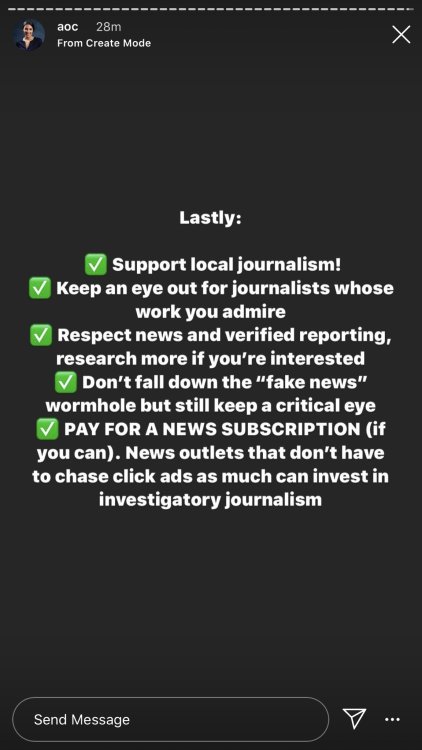#all things that i made the media literacy masterpost for
elphabaforpresidentofgallifrey:
ok so AOC’s tips for consuming news critically are???? phenomenal??? they’re better than my entire undergraduate education in political communication. it took my entire career up until this point in news media to learn this stuff. she is SPOT on.
to expand on a few of her points:
1) If you like a piece of reporting someone has done, follow the JOURNALIST, not the outlet. Digital news organizations come and go, traditional news lays people off, and freelancers don’t always work for the same place, but someone who really puts in the work that you come to trust their reporting is valuable. You have no idea what it means to be able to say “you know, I don’t know if I believe what all these news outlets are saying on this, but I know X reporter does a lot of work on this and I trust their work on it.”
2) In that same vein, you should trust public radio and print outlets more than TV (or YouTubers - both TV and YouTubers are looking for views and ad money). Seriously, I work in TV, and this is NOT a knock on TV producers at all, it’s just that TV has to work on a 24/7 news cycle, and sometimes they get stuff wrong because they have to do it quickly, or on a certain production schedule, or it has to be visual, or it has to get viewers. It is often the written/print reporters translating their scripts into published articles online who are doing the fact checking, if any. This isn’t to say all print and public radio is gospel (it sure as shit isn’t), but it’s a good place to start.
3) Most people can’t afford a news subscription, however if you can afford Spotify or Netflix, you should subscribe to your local newspaper or public radio station. What AOC doesn’t mention here about newspapers specifically, is that you need to REALLY check if that newspaper has a) been gobbled up by a hedge fund b) has some sort of weird conservative slant. Do some research first. Also, if you can’t afford a local newspaper subscription, 99.99% of the time your library card includes subscriptions to some sort of news service, that will get you behind many paywalls. Check your library system’s digital services for what news services they offer and how to log in.
4) Just think before you share. Before you reblog or retweet something, do a quick Google. Especially when someone is like “the news isn’t talking about this!” when there probably are articles about it, maybe even with further information. It really helps to look.
Post link

